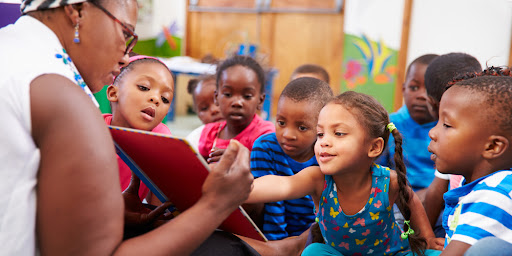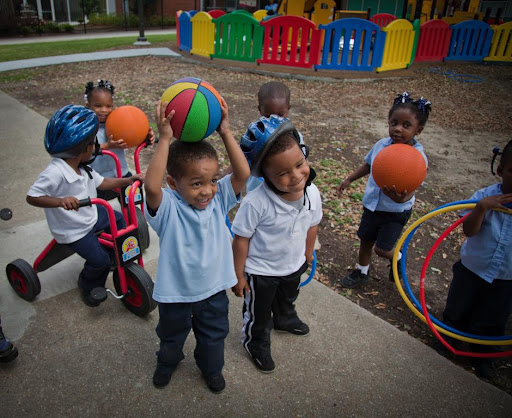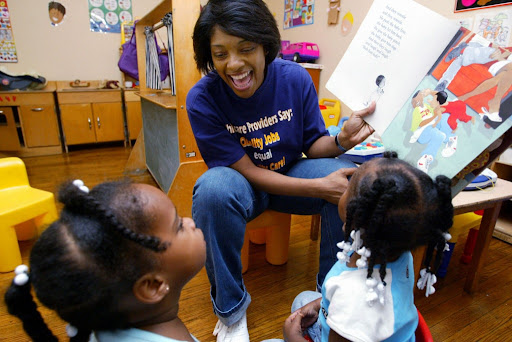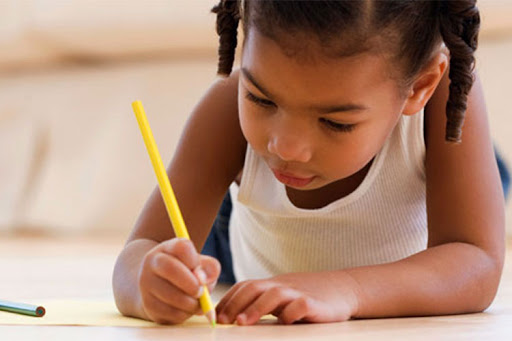Education in Nigeria has struggled to find its balance since independence. The country has however seen growth in terms of the number of Schools available to parents, but then quality education always seems to be lacking; especially with early childhood institutions. What could be the problem? How can it be rectified? All of this will be answered in this article.
What is Early Childhood Education?
Early childhood education refers to the teaching offered to children who are yet to reach the statutory age of starting primary school (Maduewesi, 1999). Young children from ages 3 to 5 years, get to learn outside of their homes, giving them the opportunity to practice what they learn at home in a more structured setting. This type of environment allows children to be more expressive. The activities they engage in, help to stimulate their mental, physical and social development.
From the age when your child becomes old enough to walk, run, count and identify shapes; your child has become old enough to pass through the next phase of their educational life, which is the elementary stage. But to get to the elementary level, your child must have passed through the preschool stage. This is the stage before a child is old enough to go to elementary school. The preschool stage is an important aspect of a child’s life that should not be neglected and early childhood education, falls under this umbrella.
Why Early Childhood Education Is Important
Early childhood education is so important for young children because most of what they learn prepares them for the next stage of their lives. The human brain undergoes rapid growth during this period; it’s at this stage that a child builds cognitive and character skills. Cognitive skills are the core skills your brain uses to think, read, learn, remember things and pay attention; while character skills are soft skills such as openness to learning, conscientiousness, teamwork, resilience, self-control etc.
Young children learn a lot in the early stages of their lives. “There’s an outburst of activity in the first five years of life, more profound than the future years,” says Rhian Evans Allvin, executive director of the National Association for the Education of Young Children. If early childhood institutions can capitalize well on the available support and learning opportunities available, then it will become easier to raise young children.
Objectives of Early Childhood Education
- Encourages and fosters creativity.
- Develops a sense of team spirit and cooperation
- Provides a place for learning and supervision while the parents are at work.
- Prepares young children for primary education by equipping them with knowledge and skills
- Making it a smooth process for young children to transition from staying at home to going to school.
In a normal setting, early childhood education is a seamless tool that serves as a healthy transition from early childhood to the first steps of being mature. However, this is not the case with early childhood education in Nigeria.
Problems facing early childhood education in Nigeria
There are so many issues and problems with early childhood education in the country. Here is a breakdown of the major problems facing early childhood education in Nigeria;
1. The increase in early childhood institutions
While it is a great thing to have more institutions, it can also be a serious issue if the quality of teaching does not match up. This is often the case with early childhood institutions in Nigeria. There are so many early childhood institutions located in various places such as organizations, churches, residential buildings, campuses of some universities etc. Despite these, many institutions fail to offer quality services. The education they render is unbalanced and poor, and the care for the children is often unsatisfactory. What should a high-quality early childhood program look like? A high-quality early childhood program should provide a safe and nurturing environment while promoting physical, social, emotional, and intellectual development for young children.
An early childhood classroom should look, sound, and feel different from an elementary classroom. At Greensprings School, we understand the value of quality education which is why we embrace an emergent literacy philosophy, which is the point when literacy begins; it is a continuous process of learning. High-quality preschool gives children a strong start on the path that leads to college or a career. Research shows that all children benefit from high-quality preschool. A substantial number of studies demonstrate the benefits of high-quality preschool programs. These include long-term research on Perry Preschool, the Abecedarian Project, and the Chicago Child-Parent Centers, as well as ongoing studies of the preschool programs in Tulsa and Boston and New Jersey’s Abbott Preschool Program, among others. Economists also have shown the benefits of early education investments, which generate approximately $7 for every dollar invested. However, the potential of preschool can only be realized if the programs are of high quality. Click here to find out how to find the best private school for your child.
2. Lack of competent teachers
When staffs are underpaid it affects the employment rates. A qualified person will not want to take a job that will pay him/her less than what they feel they deserve. This makes some organizations hire unqualified staffs that may not be suitable for the job.
3. Ineffective supervision of early childhood institutions
Many preschools in Nigeria are left unsupervised and this creates a poor running structure. Some of the teachers employed to teach children in preschools in Nigeria lack the requisite training and knowledge of handling young children. This is sometimes a result of a lack of adequate monitoring and inspection by the state authority. To ensure Greensprings School maintain optimal standards at all times in administering care to young children, caregivers/teachers have to undergo regular training. They are also supervised through physical spot checks and CCTV camera monitoring. This helps to ensure that the curriculum and teaching method are being followed stringently and also gives valid evidence against any unforeseen occurrence.
Young children should be within sight or hearing at all times. They require permission to participate in activities off the school premises with appropriate adult supervision, and with written approval by a parent/guardian. Parents should not leave their children in the hands of schools that do not lay emphasis on child supervision.
WATCH ALSO: Benefits of Early Childhood Education
4. The ratio of teachers to pupils
Hardly any early childhood education institution has sufficient staff to take care of the children. Often the classes are overpopulated and many kids do not receive the attention they require due to inadequate teachers. The student-teacher ratio is an important topic when it comes to choosing the right preschool for your child. Most people assume that a low ratio is good, and a high ratio is bad. But this is not necessarily the case. Yes, when putting your child in a traditional classroom setting, it is best to ensure a low student-to-teacher ratio.
This will make it more likely for your child to get adequate individual attention, and his/her needs aren’t simply lost in a sea of students. In a traditional setting, more students can mean more chaos, and therefore more of the teacher’s time is spent on classroom management instead of student learning. However, in a Montessori school, things are a bit different.
Montessori classes for children above the infant and toddler age level might include 20-30 students whose ages span three years. The point is to look for a school that embraces child-centred education. You don’t want your child to be left behind based on his or her uniqueness. One of Greensprings School’s core values includes Child-centeredness. The school believes every child is different and one must not assume that all children are the same. So, while thinking about the student-to-teacher ratio, it is important not to lose sight of child-centred learning.
5. Employment of native dialect
Another problem that a lot of people might view as minor is the employment of native dialects. Most of the early childhood institutions operate using English only. Other countries teach their children from a very tender age their dialect and they grow up imbibing the culture. Research has been done surrounding the role bilingualism plays in developing the executive control system of the brain. The benefits of learning a new language in terms of intellectual development clearly exist and are important. However, what is significant is the personal and communal benefits of learning a native language. While it is a great thing our young ones are learning English, they also should be taught their native language. They will benefit a lot more from learning in their native dialect.
Now that these problems have been highlighted, rectifying it should not be a hard puzzle to solve. The government should pay close attention to early childhood institutions. Actual quality monitoring units should be in place by ministries of education to ensure that both private and public preschool institutions are meeting the minimum standards. Secondly, training should be offered to organizations, schools and religious institutions on early childhood development. Greensprings School offers training on early childhood development to parents, teachers and school administrators. Thirdly, the governments should adjust the salary of all public school teachers in early childhood education. Hopefully, with all of these, education in Nigeria should be better in a few years and our young children will be able to obtain an affordable quality education.
Children are the future leaders of the nation and they should be given a well-rounded education. Therefore, the problems facing early childhood education in Nigeria need to be dealt with immediately so that our young children can be given quality education.





